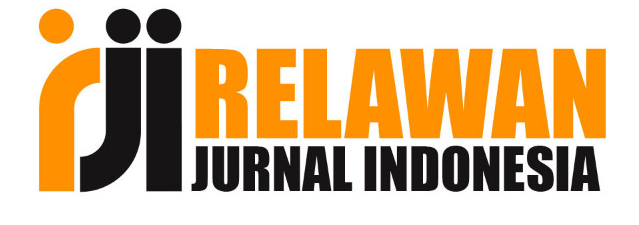THE EFFECTS OF ENGLISH SONGS ON THE SEVENTH GRADE STUDENTS’ PRONUNCIATION ACHIEVEMENT IN SMP SRIJAYA NEGARA PALEMBANG
DOI:
https://doi.org/10.36982/jge.v6i1.259Abstrak
This study was conducted in order to know the effectiveness of pronunciation achievement based on English songs strategy. This study applied a quasi-experimental research design, specifically non-equivalent control group design. The objectives of the study were to find out whether or not (a) there was significant improvement of students’ pronunciation achievement after being taught by using English songs (b) there was significant difference of pronunciation achievement between the students who were taught by using English songs and those who were not. The population was all the seventh grade students in SMP Srijaya Negara Palembang. This research, the researcher used purposive sampling. The sample was divided into two samples, there were 30 samples for experimental group and 30 samples for control group. The data were collected by using t-test (Paired Samples t-test and Independent Samples t-test). The findings showed that English songs strategy signifcantly improve the students’ pronunciation achievement (T=36.947). In addition, there was significant difference in pronunciation achievement between the students who were taught through English songs strategy and those who were not (T=12.663). Based on this study, it is found that the use of English songs in teaching English is effective to improve the students’ pronunciation and very beneficial for the students in order to facilitate them in learning English. Based on this finding, it is suggested that English songs in teaching English can be recommended for the English teachers.
Key word: effect, English songs, pronunciation
Â
Referensi
Arimili, M., Kanuri, A. K., &Kokkirigadda, W. K. (2016). Innovative methods in teaching pronunciation. International Journals of Science Technology and Management, 5(08),108-112.
Depdiknas. (2004). Pedoman khusus pengembangan silabus dan penilaian matapelajaran Bahasa Inggris. Jakarta : Direktorat Pendidikan Umum, Ditjen, Dikdasmen, Depdiknas.
Education First, English Proficiency Index (2016). English Proficiency Index (3rded). Retrieved from http://www.ef.com/epi
Farmand, Z., &Pourgharib, B. (2016). The effect of English songs on English learners pronunciation. International Journal of Basic Sciences & Applied Research, 2(9), 840- 846.
Ferrand, L., & Grainger, J. (2003). Homophone interference effects in visual word recognition. The Quarterly Journal of Experimental Psychology, 56(3), 404-419.
Gilakjani, A. P. (2011). A study on the situation of pronunciation instruction in ESL / EFL classrooms. Journal of Studies in Education, 1(1), 1-15.
Gilakjani, A. P. (2016). English pronunciation instruction: A literature review. International Journal of Research in English Education, 1(1),1-6.
Hayati, A. M. (2010). Notes on teaching English pronunciation to EFL learners: A case of Iranian High School Students. English Language Teaching, 3(4), 121-126.
Pimwan, K. (2012). The effect of teaching English pronunciation through songs of prathomuska 4 students at WatratchaphatigaramSchool. Master’s thesis, Srinakharinwirot University.
Ratnasari, H. (2007). Songs to improve the students’ achievement in pronouncing English words. Unpublished master’s thesis, Languages and Arts Faculty Semarang State University.
Riswanto., & Haryanto, E. (2012). Improving students’ pronunciation through communicative drilling technique at Senior High School (SMA) 07 South Bengkulu, Indonesia. International Journal of Humanities and Social Science, 2(21), 82-87.
Shen, C. (2009). Using English songs: An enjoyable and effective approach to ELT. English Language Teaching, 2(1), 88-94.
Thomas, S., & Clarke, H. (2013). Mini flashcards language games. London: Harper Collins UK.
Wallen, N. E., &Fraenkel, J. R. (1991).
Educational research : A guide to the process. New York, NY: McGraw Hill, Inc.
Unduhan
Diterbitkan
Cara Mengutip
Terbitan
Bagian
Lisensi
Global Expert: Jurnal Bahasa dan Sastra is published by Universitas Indo Global Mandiri and licensed under a Creative Commons Attribution-ShareAlike 4.0 International License.










